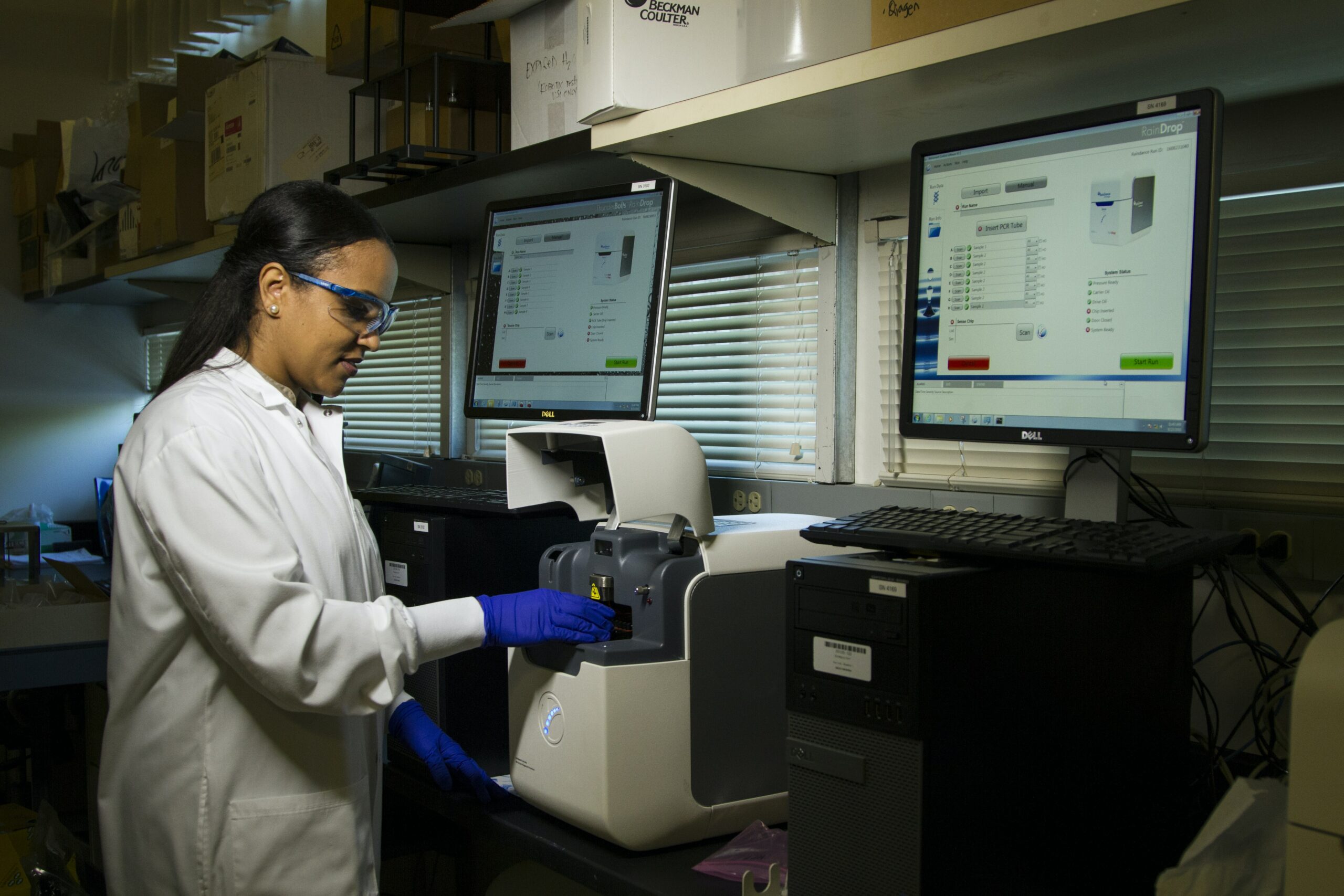Generative AI has emerged as a powerful tool in the healthcare industry, revolutionizing diagnostics, drug discovery, and various other aspects. Its ability to replicate human-like creative thinking and generate new data has opened up endless possibilities for medical professionals. This article explores the impact of generative AI in healthcare, uncovering its potential to enhance accuracy and efficiency in diagnostics, accelerate drug discovery processes, and ultimately improve patient outcomes.

Overview of Generative AI in Healthcare
Generative artificial intelligence (AI) is a powerful tool that is revolutionizing the healthcare industry. By leveraging machine learning algorithms and deep neural networks, generative AI has the ability to generate new data, images, and even text. This technology holds immense potential in various aspects of healthcare, including diagnostics, drug discovery, medical record analysis, personalized medicine, patient monitoring and care, as well as addressing ethical and regulatory challenges.
Introduction to Generative AI
Generative AI is a branch of artificial intelligence that focuses on the creation of new and original data based on patterns and examples. Unlike traditional AI, which primarily focuses on pattern recognition and classification, generative AI goes beyond that by creating new content that is similar to the existing data it was trained on. This unique ability makes generative AI a valuable tool in various industries, especially in healthcare.

Benefits of Generative AI in Healthcare
Generative AI has several key benefits that make it a valuable technology in the healthcare industry. Firstly, it has the potential to improve the accuracy and efficiency of diagnostics, leading to faster and more accurate disease detection. Secondly, generative AI can accelerate the drug discovery process by identifying potential drug candidates and predicting their efficacy. Thirdly, it enables personalized medicine by tailoring treatments to individual patients based on their unique characteristics and genetic profiles. Finally, generative AI can enhance patient monitoring and care by providing continuous real-time monitoring and predictive analytics for intervention.

Applications of Generative AI in Healthcare
Diagnostics
Generative AI has the potential to revolutionize diagnostics in healthcare. It can assist in the advancements of medical imaging, enabling more accurate and detailed diagnoses. By analyzing large amounts of medical images, generative AI can identify patterns and anomalies that may not be easily detected by human experts. This can lead to improved accuracy in diagnosing various medical conditions, including cancer, neurological disorders, and cardiovascular diseases. Additionally, generative AI can contribute to early disease detection by identifying subtle changes in patient data or imaging results that may indicate the presence of a disease before symptoms manifest.
Drug Discovery
Drug discovery is a complex and time-consuming process that can benefit greatly from the application of generative AI. Traditional methods of drug development rely on trial and error and are often associated with high costs and low success rates. However, generative AI can accelerate drug development by identifying potential drug targets and validating their effectiveness. By analyzing large datasets and simulating the interactions between molecules, generative AI can generate new drug candidates that have the potential to be effective in treating specific diseases. This not only saves time and resources but also improves the chances of finding successful drug candidates.
Medical Record Analysis
Generating insights from medical records is a tedious and time-intensive task for healthcare professionals. Generative AI can automate the extraction of information from medical records, making the process faster and more efficient. By analyzing vast amounts of medical data, generative AI algorithms can extract relevant information such as diagnoses, treatments, and outcomes. This automated analysis enhances precision in diagnosis and treatment planning, improving overall patient care. Additionally, generative AI can predict treatment outcomes by analyzing patient data and identifying patterns that may indicate the likelihood of a successful outcome. This enables healthcare providers to make more informed decisions about treatment plans and interventions.
Personalized Medicine
Personalized medicine aims to tailor treatments to individual patients based on their unique characteristics, genetic profiles, and medical history. Generative AI plays a crucial role in enabling personalized medicine by analyzing and interpreting large amounts of patient data. By analyzing genetic data, generative AI algorithms can identify genetic variants that may affect an individual’s response to specific drugs. This information can help healthcare providers customize therapies and predict drug response, optimizing the effectiveness of treatments. Furthermore, generative AI can assist in identifying novel biomarkers that can be used to predict disease progression and guide treatment decisions.
Patient Monitoring and Care
Generative AI can significantly enhance patient monitoring and care by providing continuous real-time monitoring and predictive analytics for intervention. By analyzing data from wearable devices, sensors, electronic health records, and other sources, generative AI algorithms can detect and predict changes in a patient’s health status. This enables healthcare providers to intervene early and prevent adverse events, improving overall patient outcomes. Generative AI can also contribute to the development of personalized care plans by considering individual patient data and preferences, resulting in more effective and patient-centric care.
Ethical Considerations
While generative AI offers immense potential in healthcare, there are important ethical considerations that need to be addressed. Privacy and data protection are critical issues, as the use of personal health data raises concerns about data security and patient confidentiality. Additionally, bias and fairness must be carefully considered, as generative AI algorithms rely on the data they were trained on, which may inherently contain biases. Transparency and explainability are also important, as healthcare professionals and patients need to understand how generative AI algorithms arrive at their conclusions. Ensuring ethical use of generative AI in healthcare requires a robust framework that prioritizes privacy, fairness, and transparency.
Regulatory Challenges
The use of generative AI in healthcare is regulated by agencies such as the U.S. Food and Drug Administration (FDA). These agencies have provided guidelines and regulations to ensure the safe and effective use of AI in healthcare. However, there are still challenges in implementing these regulations, particularly when it comes to addressing safety concerns associated with generative AI. The rapid pace of technological advancements makes it difficult for regulations to keep up, necessitating constant updates and adaptations. Overcoming these regulatory challenges requires collaboration between stakeholders to establish a balance between innovation and patient safety.
Data Requirements and Challenges
Generative AI algorithms rely heavily on large and diverse datasets to train and generate meaningful insights. Access to sufficient and high-quality data is crucial for the successful implementation of generative AI in healthcare. However, healthcare data is often fragmented, stored in different formats, and subject to strict privacy regulations. Ensuring data privacy and obtaining appropriate consent from patients are important considerations when using patient data for generative AI applications. Data interoperability, or the ability for different systems to exchange and use data, is another challenge that needs to be addressed to fully leverage the potential of generative AI in healthcare.
Future Outlook and Conclusion
The future of generative AI in healthcare is promising. As technology continues to evolve, newer and more advanced generative AI algorithms will emerge, further enhancing its capabilities in diagnostics, drug discovery, medical record analysis, personalized medicine, and patient monitoring and care. The potential impacts of generative AI in healthcare are vast, ranging from improving patient outcomes and treatment efficacy to reducing healthcare costs and increasing accessibility to care. However, it is crucial to navigate the ethical and regulatory challenges associated with generative AI to ensure responsible and equitable use in healthcare. With continued advancements and collaboration between industry stakeholders, generative AI has the potential to transform healthcare and revolutionize the way we diagnose, treat, and care for patients.










